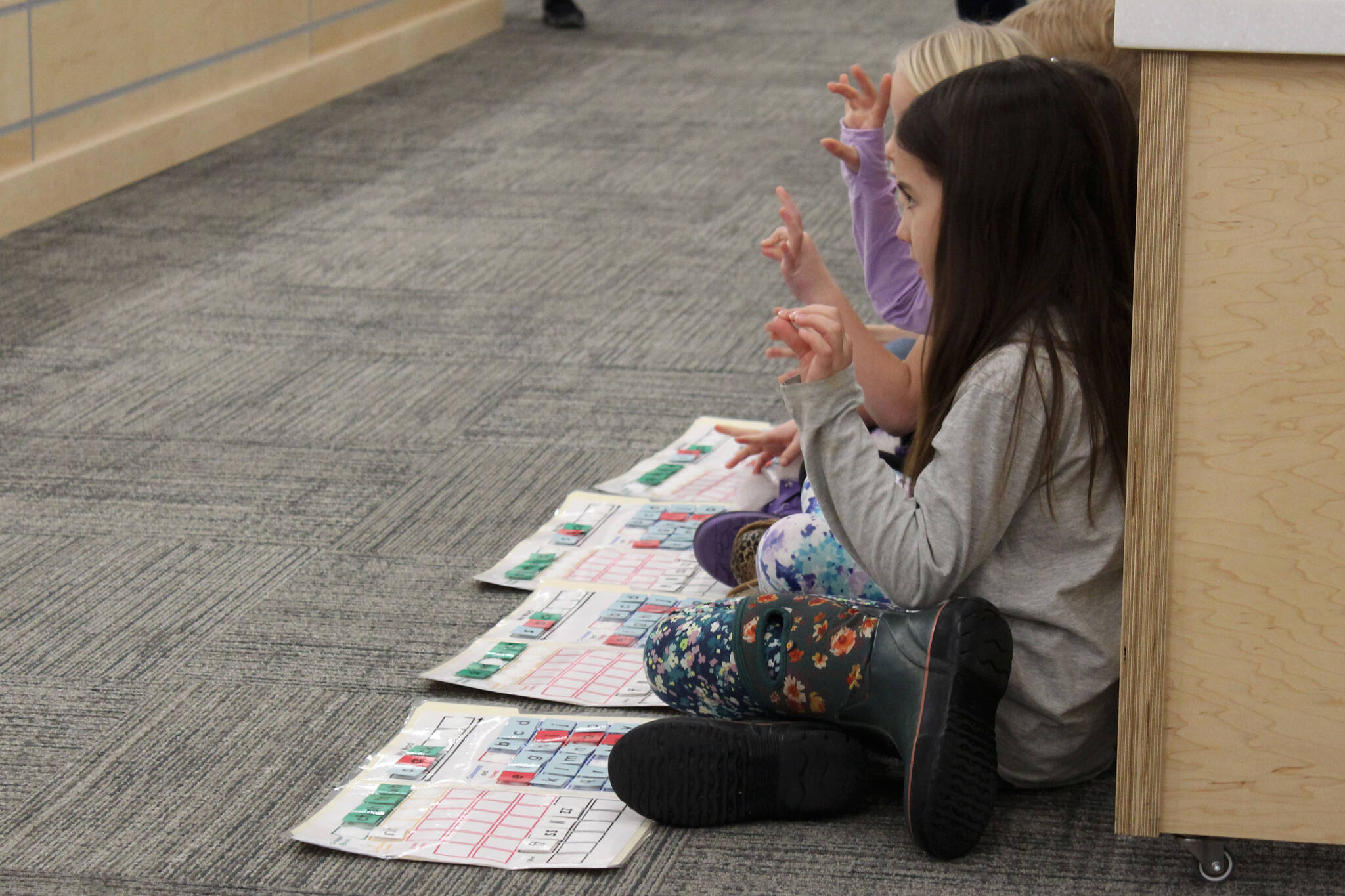When the Kenai Peninsula Borough School District rolls out a new English Language Arts curriculum this fall, students will be presented with materials about Alaska history and culture, rather than world religions.
The change comes after some teachers and community members questioned whether some of the proposed topics, specifically Judaism, Christianity and Islam, were age-appropriate for young elementary school students.
The new curriculum being debuted by the district later this year is Amplify’s Core Knowledge Language Arts, or CKLA. KPBSD is implementing the curriculum, along with other changes, to help boost literacy among elementary school students as prescribed by the Alaska Reads Act, which Gov. Mike Dunleavy signed into law last summer.
The Alaska Reads Act aims to enable all students to read by the end of third grade and is split into four components including early learning, department reading programs, district reading intervention and virtual education. Of those, district reading intervention is the only part of the legislation that districts are required to adhere to.
The Alaska Department of Education and Early Development last year put out a call to Alaska school districts interested in participating in a K-5 early literacy core material grant, to which KPBSD responded. After extensive review of proposed programs vetted by both the state and a group from KPBSD, the district opted to move forward with Amplify’s CKLA program.
Per DEED, the ELA Core Curriculum grant program was developed to ensure that Alaska’s elementary school classrooms have Tier 1 core ELA materials aligned with Alaska standards and the guidance described by the Alaska Reads Act. Tier 1 refers to “evidence-based core instruction that all students receive in the classroom,” according to the department.
A map of CKLA’s instruction sequence maps out units and lessons across all grades from kindergarten through fifth grade, with specific units and lessons color coded to identify connections across grades.
KPBSD Assistant Superintendent Kari Dendurent on Tuesday said that the district will shift from a world religions curriculum to one that centers on the history and culture of Alaska’s Indigenous people. The materials will meet standards set by the state and build on what KPBSD students are already learning. It is typical, she said, for some content to be trimmed when a new program is rolled out.
Heading into the 2023-2024 school year, Dendurent said KPBSD’s curriculum coordinator will first work with specialists to define the scope and sequence of the curriculum for the first quarter of the school year. Then, district staff will be invited to serve on a committee tasked with implementing and reviewing the curriculum for the next three quarters.
The changes made to the curriculum, Dendurent said, were in response to concerns brought by KPBSD staff and community members. The Indigenous Peoples of Alaska History and Culture course was discussed first by KPBSD’s instructional team and then presented to kindergarten through fifth grade principals.
“The principals along with (the District Instructional Team) felt this was a great option as Title VI has had a strong presence in our schools this year and students enjoy the activities,” Dendurent said.
Title VI of the federal Elementary and Secondary Education Act of 1965 addresses Indigenous education, including for Alaska Natives. Title VI makes available federal funds to support Alaska Native and other Indigenous K-12 students. Within KPBSD, the group that oversees the implementation of Title VI programming is organized as KPBSD Indigenous Education.
Multiple people during the KPBSD Board of Education’s June 5 meeting thanked district administrators for hearing their concerns and making adjustments.
Kim Bates, who teaches second grade at Mountain View Elementary School, was a vocal critic of the section of CKLA curriculum that addresses world religions, which she has said is not age appropriate for students. Following a meeting with district administrators, Bates thanked them for the “openness and the willingness” to explore how KPBSD picks new curricula.
“Thank you for keeping an open mind to allowing community members and teachers to participate in that curriculum process,” Bates said during last week’s board meeting. “People are interested; they want to participate. So let’s make it available to them and let them be a part of that process.”
A robust literacy curriculum isn’t the only mandate put forward by the Alaska Reads Act, though. Pre-K through third grade teachers must now obtain a special reading endorsement from DEED and school districts must administer literacy screening assessments to students. Targeted intervention based on those results must also be applied.
To help teachers and other district staff navigate the requirements of the legislation, including the three different ways to obtain the new reading endorsement, the district has launched an Alaska Reads Act website designed for KPBSD. According to that site, teachers can either take an in-depth, 12-credit course called LETRS, a three-credit course called Keys to Literacy or take an eligible test and achieve a certain score.
That website can be accessed at sites.google.com/g.kpbsd.org/pdinkpbsd/pd-opportunities/professional-learning/alaska-reads-act.
Reach reporter Ashlyn O’Hara at ashlyn.ohara@peninsulaclarion.com.

